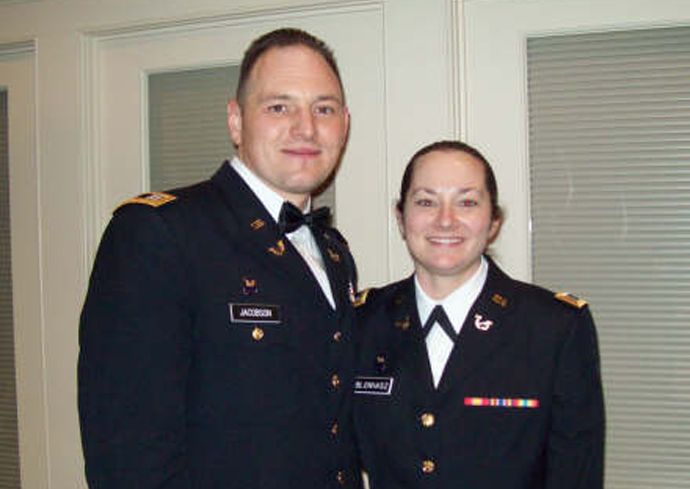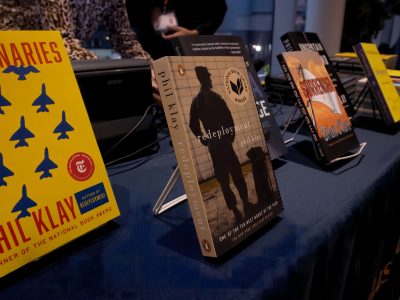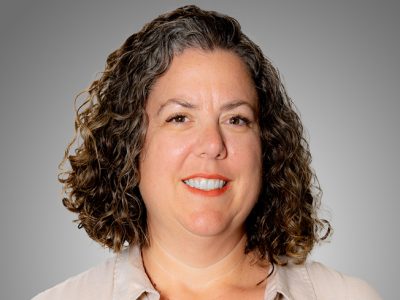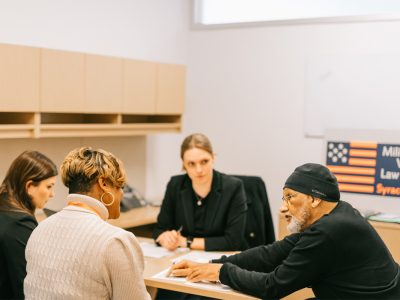Rooted in Service: From Army Lawyer to Student Advocate
After years of legal service in the U.S. Army, Jaime Jacobson G’25 is continuing her commitment to public service through academia. Jacobson is currently a pursuing a master’s degree in higher education in the School of Education and draws a strong connection between her military experience and her future supporting college students.
Before commissioning into the U.S. Army Judge Advocate General Corps (JAG Corps), Jacobson’s professional path was already rooted in advocacy.
“I did my undergraduate degree at the University of Massachusetts at Amherst and worked for a few years as a case manager for a nonprofit agency, particularly helping victims of domestic abuse,” says Jacobson.
That passion carried through into law school at Northeastern University in Boston, where she focused on legal assistance. The military came into view soon after through family influence.
“I have two cousins that were both in the Army,” Jacobson says. “One was having some interesting legal issues, and he was describing his experiences with the legal assistance office, which initially got me looking at joining the service.”
The defining moment, however, came after witnessing the military’s care during a family tragedy.
“My other cousin had a traumatic experience in the family, and I watched his unit sort of descend on his household and take care of everything for him and his wife,” Jacobson recalls. “That kind of solidified it for me, if I was going to provide legal assistance then these are the people…this is the group that I really wanted to serve.”
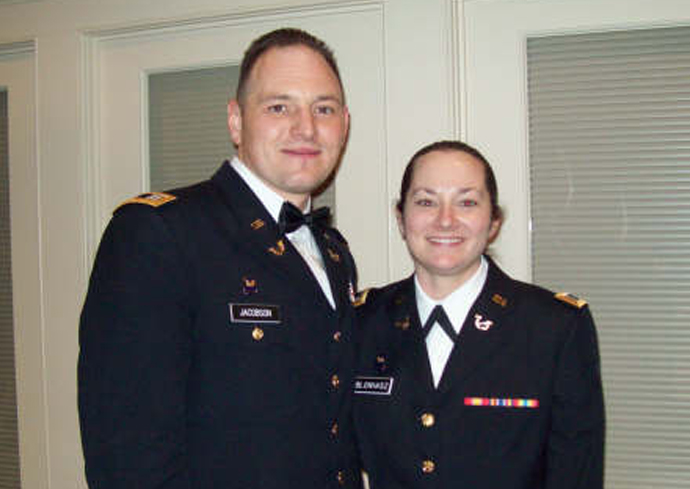
A few years after accepting a direct commission into the Army JAG Corps, Jacobson found herself working in education as an instructor at the U.S. Army Military Police School in Fort Leonard Wood, Missouri.
“Part of my job was training military law enforcement officials, new investigators and special agents. I taught them about different things like the military justice system and criminal justice system, but being entrusted to help them along their journey and teach them was amazing,” Jacobson says.
The experience certainly had an impact on her future goals. Despite her successful career, Jacobson and her husband would both make the decision to transition out of the military–largely due to the desire to focus on their new, growing family.
“My husband and I—we actually met at our officer basic course—were dual military,” says Jacobson. Like her, Jacobson’s husband served as a JAG officer in the Army. “I got out just before I had my second child. For me, it was really about just needing to be in one location, so that was a part of my decision to leave the military.”
As the pair transitioned out of the Army, her husband accepted a job at Syracuse University working with the Title IX office and has been working at the University for the last nine years. “Definitely a little shout out to the university, they really do a great job of hiring veterans,” Jacobson says.
With her family settled in Syracuse, Jacobson began looking for her next chapter and higher education made perfect sense.
“I actually see a really strong connection between the work that I did in the military and the clientele that I got to serve, those sort of 18- to 24-year-old service members. I can see the connections between that work and the work here on college campuses,” says Jacobson.
Many college students and military service members experience parallel challenges when being uprooted from family, placed within an unfamiliar community with an expectation to s쳮d. The solutions to help overcome those challenges have a lot of parallels too, and that’s where Jacobson credits her previous work with soldiers for being a foundation to support students in higher education.
“There’s a running joke amongst my cohort that I’ve led many lives before coming here—and they’re not wrong,” Jacobson says.
Looking forward, Jacobson hopes to bring that same ethic of service to higher education. “I want to be able to use a lot of the skills and experiences that I had in the military to improve the experiences of service members and be able to do that here at a college or university as well.”
